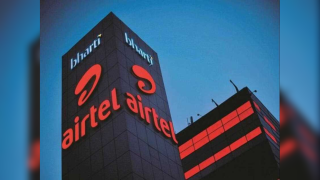Over the last eight years, Aqua Comms has grown from a trans-Atlantic cable project to become one of the leading connectivity companies providing services across its seven subsea fibre cables.
The company connects North America to Ireland, the UK and onwards to northern Europe, and Southern Europe to India. The company’s new CEO Jim Fagan joined Capacity at International Telecoms Week (ITW) 2023 to discuss his new role and the future direction of the company.
Fagan took on the job in May, joining from Global Cloud Xchange (GCX) where he served as chief revenue officer. The industry veteran’s career spans over 25 years in telecoms and IT including roles at the likes of Rackspace, Pacnet, Telstra and JF Telecom, before joining GCX in September 2020.
Fagan replaced another industry mainstay in Nigel Bayliff – a figure that Fagan himself describes as, “hands down one of the world’s greatest builders of cables in the industry”. After a lengthy and detailed transition, he believes that he now has a tremendous responsibility to evolve Aqua Comms into its next iteration.
BRUTAL COMPETITION
The CEO is full of respect both for Aqua Comms’ success and the industry as a whole, identifying it as critical to global operations. “But it has only really come into its own over the past 25 years or so,” he says. Over the last 10 years or so hyperscalers such as Microsoft, Amazon, Google and Meta have risen to become major players in the subsea industry.
Fagan, himself acknowledges that if he were leading a hyperscaler, the subsea industry is undoubtedly an area he would tap into. Fagan says he hasn’t seen enterprises with the scale and ability to expand and fill niches in the space which leads to awkward costs.
“It’s [subsea] the most brutally competitive market in our industry,” Fagan says. “You have to be laser-focused on who you’re serving, how you’re serving [the market], how you’re managing costs and your investment decisions." Fagan says Aqua Comms has done a solid job in identifying this and delivering on expectations. “This is actually in our DNA, this is what we do, and we’ve stuck to it,” he says.
Fagan notes the backing of Digital 9 Infrastructure (D9), a digital infra investor, which acquired Aqua Comms in 2021. “D9 is committed to supporting us in accelerating our expansion into new geographies and being the leader in global subsea connectivity."
Having a strong financial backer that wants Aqua Comms to expand is incredibly valuable given the current market conditions, Fagan adds. As evidenced by as by D9's investment in Aqua Comms' EMIC-1 and the 2Africa subsea cable.
THE ART OF THE POSSIBLE
Earlier this year Aqua Comms bought Indian infrastructure company Openbyte Infrastructure to expand into India.
This is a key deal for the company, particularly from a regulatory perspective, but Fagan says the acquisition is even more important given the “deep ties” of Openbyte to all of the operators in India.
In an opinion piece for Capacity, Amit Vyas, CEO for India at Aqua Comms said: “The acquisition was made with one simple goal in mind – to enhance the digital infrastructure of the country and provide reliable capacity that is easily accessible without regulatory hassles or those relating to interconnection.
“Openbyte holds similar values to Aqua Comms, with a strong focus on carrier neutrality. This, together with proven experience on the ground, is intended to make it easy to buy capacity into and out of India,” added Vyas.
“Having [Openbyte] on the ground there to help plot our India strategy is massive for us,” Fagan says of the acquisition.
“It allows us to begin thinking about the art of the possible – whether that’s down the road and we want to begin construction or land cables there, having that expertise on the ground that can guide us through helps us unlock that.”
As for the market as a whole, Fagan describes it as “brilliant” and one that is key for the company moving forward. This is a market that Fagan foresees will be a “big transit hub” given the amount of data centre building and general development in the country.
“Then there's also the traditional macroeconomic factors, the population, the income level and the ongoing switch to 5G,” says Fagan as reasons to enter the market.
It may not be all on Aqua Comms' own infrastructure, but Fagan is confident that the firm will have the partnerships in place to enable key routes from India.
Yet even though the market remains an attractive one for Fagan, he notes the potential trends plaguing the industry – two specifically to watch out for. That is underinvestment and supply chain issues.
The two go hand in hand, Fagan says, with several projects taking longer than expected to complete and at every stage of the cycle, he adds, funding becomes more difficult to obtain. “Countries are realising this is critical infrastructure and are trying to do the right thing but a lot of the time they’re making the process more complex,” Fagan says.
For Aqua Comms, it is about identifying which of these projects will happen, making sure they are completed and getting them operational.
“It’s important we don’t create a bottleneck, big shortage in the industry.” When pressed on the three words to describe the subsea industry, Fagan takes a few seconds to think.
“Complex, uncertain and necessary, and if something is necessary, there’s a market for it. So it begs the question for us, how do you crack it?” Fagan says Aqua Comms is looking to expand into the Pacific and Southeast Asia allowing the company to create a “global trunk”. “So how do we create a global trunk with capacity?” Fagan asks.
“We become a go-to provider for the largest users in the world to get them into the biggest regions and markets.” Fagan stresses that this isn’t a significant departure from Aqua Comms previous strategy, but he vowed to be more “aggressive” in the market.






